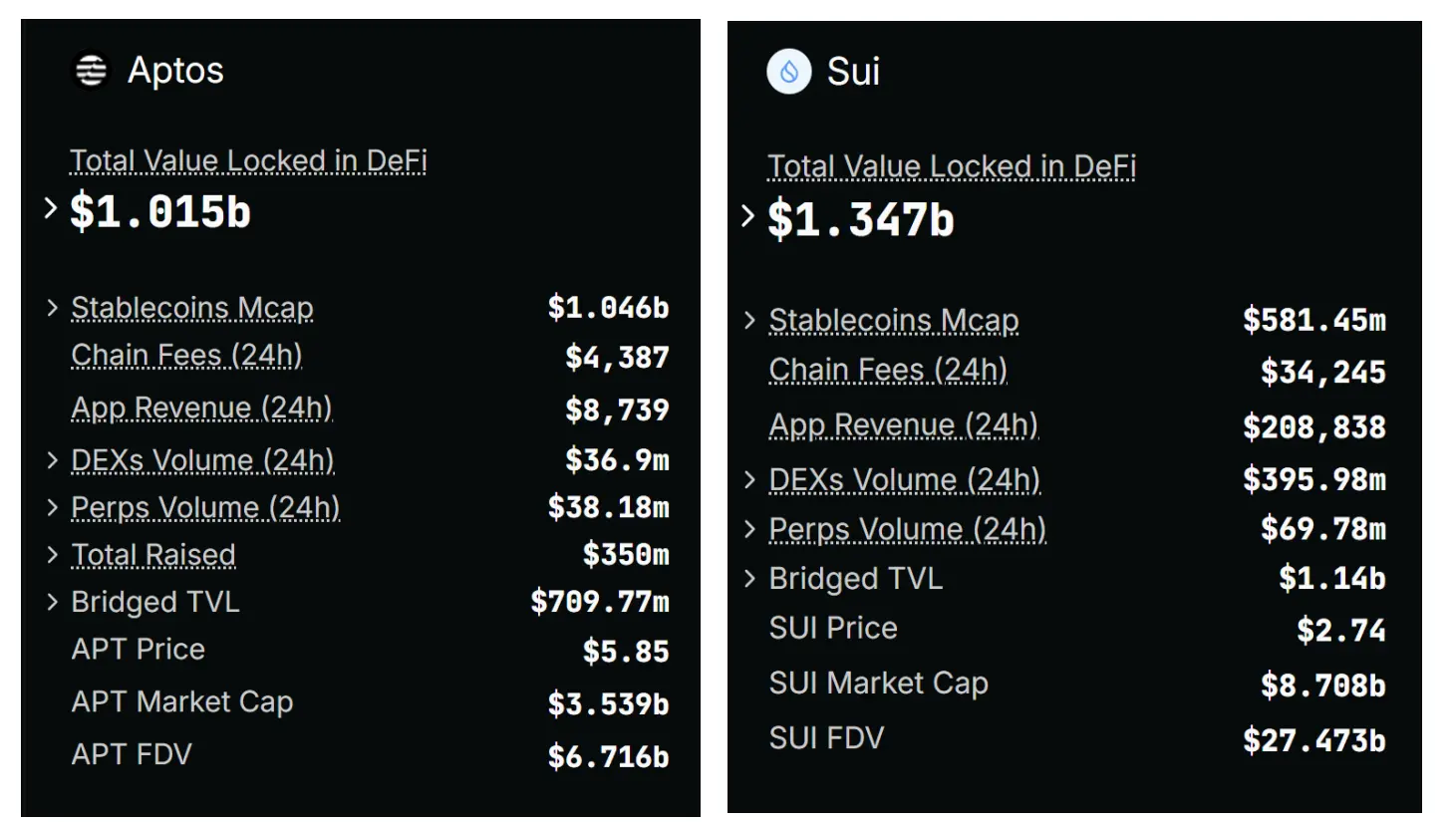Author: Fairy, ChainCatcher
Editor: TB, ChainCatcher
“The chain is fast, the heart aches, and the money is little.” This tongue-in-cheek remark fully captures the frustration of many early Aptos supporters.
When Sui took off, the other "Move Twins" fell into a completely different situation. When Aptos was first born, it entered the market with high TPS, Move language and strong capital support, but capital can mature a public chain but cannot give it real vitality.
What kind of dilemma has Aptos fallen into?
The halo fades and the ecological growth stalls
Aptos was born in 2022. Backed by the former Meta team, it emerged as a star project under the halo of "next generation L1". With the support of a16z, YZi Labs, Jump Crypto and other institutions, Aptos enjoyed the enthusiastic pursuit of the capital market in the early stage. However, as market sentiment cools, its once proud technical narrative is gradually losing its appeal.
Dune data shows that the number of active addresses of Aptos has dropped to about 1 million per day, and the number of daily transactions is 3-4 million times. Sui, which is also based on the Move language, has more than 10 million daily transactions, and its DEX transaction volume and application revenue also far exceed Aptos.
So, what went wrong with Aptos’ ecosystem growth?

Image source: Deflama
False prosperity of resources
Aptos' previous ecological expansion was highly dependent on the "resource-driven" model rather than real market demand. Crypto KOL @cryptobraveHQ pointed out that Aptos distributed a large number of chips to partners, introduced well-known DeFi to enrich infrastructure, and pulled leading institutions such as Binance and OKX into ecological construction through OTC refinancing. However, this "quick-play" did not bring about real user migration, but was more like a "resource arbitrage game":
- After the top DeFi project landed on Aptos, the real user growth was limited, and the chips were quickly sold after being unlocked;
- TVL may seem to be growing, but most of the funds may just be used to earn subsidies, and no real liquidity has been formed;
- Ecological resources are tilted towards "airborne" projects rather than supporting native developers, which has limited the development of Aptos native projects and made it difficult for the ecosystem to form self-sustaining blood.
Aptos' "ecological support" is more about form than substance
In mid-March, Aptos launched the LFM program to help ecological projects prepare for TGE. However, Amnis Finance, one of the first LFM members that was highly supported by the community, “turned over” due to airdrops.
Community member @KuiGas pointed out that the airdrop distribution of Amnis Finance is highly centralized: only 10,000 of the 440,000 addresses received airdrops, resulting in many real users getting nothing. In this "ecological support" airdrop farce, Aptos' shortcomings in project review and community governance were exposed.
Aptos’ “ecological support” is more like cooperation in name only rather than true ecological co-construction.
Aptos gave Amnis a lot of resources, including token rewards, and the latter also spent a year on marketing and lottery. However, the whole process was more about form than substance, and what it ultimately brought was not ecosystem growth, but a failed PR:
- There is no combined effect with the core ecology.
- There was no reasonable advice or community guidance on the airdrop logic before distribution.
@KuiGas said that the airdrop of Amnis Finance was controversial, but Aptos still chose to exit silently, repeating a series of inaction in the past.

Image source: @KuiGas
Core executives leave in droves
Over the past year, Aptos has experienced constant turmoil in its senior management, with CEO Mo Shaikh, head of product design Jessica Anerella, and head of product Cathy Sun leaving the company one after another, sparking market concerns about its chaotic internal governance.
Crypto KOL @cryptobraveHQ disclosed that last year Aptos conducted APT over-the-counter (OTC) trading at a price far below the market price. At that time, the market price of APT was in the range of $10-13, but some investors were able to participate in OTC trading at a price of about 40% off. Coincidentally, shortly after the incident was exposed, co-founder and CEO Mo Shaikh and several employees with venture capital (VC) backgrounds left the company one after another.
It is speculated that the direct reason for the personnel changes may involve OTC interest transfer, and the fundamental reason is that Aptos' overall performance after the coin issuance did not meet expectations.
The community is “disappointed” with Aptos, is it heading for decline?
Aptos was once highly anticipated, but now it is deeply mired in community doubts and disappointment. "Lack of market acumen, unclear strategic direction, internal corruption..." Many community members are "disappointed" with it, and the once high expectations are being eroded step by step by reality.
Community member @yi_juanmao bluntly said that the core team of Aptos and Sui both came from large companies, but their development trajectories were completely different. He criticized Aptos for not following the Web3 route in terms of market sense, strategic layout, user maintenance, and ecosystem co-construction. Instead, it was obsessed with boasting about its high TPS, and its style of doing things became more and more like a rigid traditional Web2 enterprise. He also pointed out that the Aptos ecosystem was full of parasitic projects, overly dependent on capital transfusions, and the entire system lacked vitality and was lifeless.
Community member @Cary_Zz reviewed the changes in the past year and said: "Last year, the two Move leaders were at the same starting line. At that time, Aptos was even more popular than SUI, and the entire community was confident in welcoming the feast of the Aptos ecosystem. However, a year has passed, and things have changed. One of the two Move leaders has become a hero, and the other has become a bear. The price of SUI has been rising, while the Aptos team is busy selling coins at low prices on OTC, with internal corruption and profit transfer, and finally with the departure of the CEO, a mess was left behind."
Community member @imsongshu pointed out that Aptos’ internal staff were pedantic and extremely inefficient. @cryptobraveHQ echoed that Aptos used “compliance” as an excuse and the process would take three months.

The capital halo may bring short-term prosperity, but what really determines whether the public chain can gain a foothold in the long run is always the user accumulation and sustainable development of the ecosystem.
The competition in the L1 track is still fierce. Only time can tell whether Aptos can break through.















